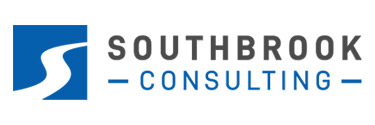
You love your business, but that doesn’t mean you can afford to work for free. Yet, figuring out how to pay yourself as a business owner can be complicated. You need to think carefully about how you take money out of your business. Typically, that’s done one of two ways: a salary or an owner’s dividend/draw. However, there may be other ways that you have not considered.
Before getting into my Best Practices, we need determine and identify a few things:
- What is the role of the Owner? Some owners are very hands on, meaning they perform tasks “in the business” such as sales, design, estimating, project managing, doing the actual work, invoicing, administration etc. These same owners then must work “on the business” and worry about getting paid by clients, securing insurance liability, dealing with the bank, ensuring there is enough employees and getting employees paid. The list goes on! What do you do?
- What is the Market Value of the position? How much should an owner get paid (in total compensation – salary, dividends, perks etc.)? This is a complex situation. However, I do know that owners in general do NOT pay themselves enough. I have seen owners that pay themselves as low as $20,000 and as high as $300,000!
- How do you ensure that you can get paid by your company? When the “amount” is determined, its imperative that the “amount” is included in your Overhead budget and recovered properly through labour, material, equipment, and subcontractors. It is then important to ensure that your Operating Company has sufficient cash flow. Consider getting a Line of Credit or Bank Loan for your business as it is important that you, as the Owner get paid!
- What are the tax implications? Each person’s and Operating Company’s tax situation will be different as well and does need to be considered. Consult your Accountant!
The best practices below are based on your Operating Company being a Canadian controlled private Corporation and my experience as a business owner.
Nathan’s Best Practices:
- Income Splitting – include your spouse in payroll
- If your spouse is working “in” the business or “on” the business, ensure that he/she is getting a “fair market value” for the work that is being performed
- If the spouse is working “on” the business (not day to day tasks), ensure that a job description is in place, e.g. Senior Advisor.
- Salary – pay yourself and your spouse a “reasonable” salary without getting into higher tax brackets. Additionally, owners want to contribute to paying CPP for retirement purposes later. Additionally, when applying for a personal mortgage, you will need a T4 that will support your mortgage. If you only rely on paying yourself a dividend you may not have any income and most banks know this! Canadian banks do not like risks! They want to see that you pay yourself a salary and getting regular income to make your mortgage payments.
- Dividends – paying yourself a bi-weekly or monthly dividend (same amount each pay period) is a good practice. Waiting for profits to accumulate until the end of year is not guaranteed.
- Management Fees – Consider setting up a Holding Company separate from your Operating Company. Then charge a monthly management fee from your HoldCo to the Operating Company. The benefit in this scenario is that the HoldCo will only charge HST/GST on the management fee. You and your Operating Company will pay less tax too!
- Health Benefits (Health Spending Account)
- There is no reason why owners need to use after tax dollars for their own personal health expenses.
- Typical Health Insurance policies can be very expensive and not everything may be covered
- Alternatively, you can have the Operating Company pay a monthly dollar amount into a Health Spending Account. Then you can utilize the money for health expenses tax free. (contact me directly for more info on this)
- Vehicles
- Personal vehicle – its best to have 1 personal vehicle in case CRA performs an Employee Taxable Benefit Audit. About 12 years ago, I experienced this and because I did have a personal vehicle, CRA was satisfied with the explanation. If I did not have a personal vehicle (and didn’t track my personal kilometers), I would have to pay the CRA calculation of using a company vehicle for personal use. This would have cost me approximately $8000 for the years I was audited.
- Company vehicle – have the Operating Company pay
- Miscellaneous Perks – Operating Company to pay
- Fuel & Vehicle Insurance
- Cell phones and Communications
- Utilizing your services at your personal home (Landscaping, Maintenance, Home Renovations etc.) – This is a good practice, just don’t get carried away and spark an audit!
- Travel – be cautious of expensing all travel or personal vacations to your business. CRA will start to ask questions (and you don’t want this) if your travel expenses are disproportioned to your total sales/revenue.
You have a lot of love for your business, but you also know that love doesn’t pay your bills. As the business owner, you need to pay yourself to cover your personal expenses and justify the time you spend working in your business. But, of course, compensating yourself isn’t always straightforward. Use this article as your guide to determine how to pay yourself. But, ensure that your overall tax situation is being reviewed by a Tax Specialist.
If you are interested in discussing this issue in more detail, contact Southbrook Consulting.






